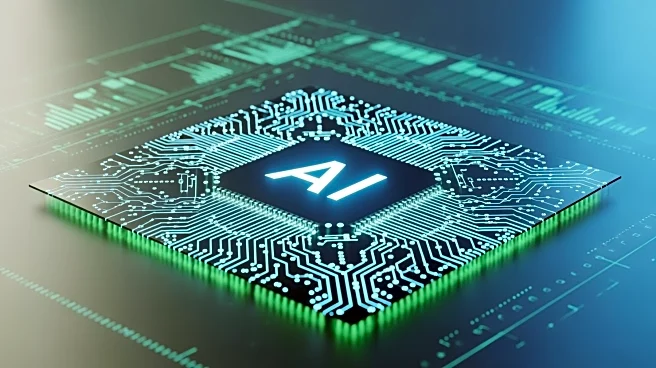What's Happening?
TechCrunch Disrupt 2025 is focusing on the evolving role of artificial intelligence (AI) in the enterprise sector, particularly its impact on Chief Information Officers (CIOs). The conference is renowned
for providing insights into startup innovations and investment trends, but this year, it emphasizes the dual nature of AI as both an opportunity and a threat. Key sessions will explore agentic AI, AI model training, and the challenges of scaling AI solutions within IT organizations. These discussions aim to equip CIOs with the knowledge to navigate the complexities of AI integration in their operations.
Why It's Important?
The focus on AI at TechCrunch Disrupt 2025 underscores its growing significance in enterprise strategy. For CIOs, understanding AI's potential and risks is crucial as they lead digital transformation efforts. AI can drive efficiency and innovation but also poses challenges such as ethical considerations and the need for robust data management. The insights gained from the conference can help CIOs make informed decisions about AI adoption, balancing technological advancement with organizational stability. This is vital for maintaining competitive advantage in a rapidly evolving tech landscape.
What's Next?
CIOs attending TechCrunch Disrupt 2025 are likely to return with strategies to implement AI more effectively within their organizations. They may focus on developing frameworks for ethical AI use and enhancing data governance to support AI initiatives. Additionally, the conference could spark collaborations between startups and established enterprises, fostering innovation and accelerating AI deployment. As AI continues to evolve, CIOs will need to stay abreast of technological advancements and adapt their strategies to leverage AI's full potential while mitigating associated risks.
Beyond the Headlines
The discussions at TechCrunch Disrupt 2025 may influence broader industry trends, encouraging more enterprises to explore AI's capabilities. This could lead to increased investment in AI research and development, driving technological breakthroughs. Moreover, the emphasis on ethical AI use may prompt companies to adopt more transparent practices, addressing public concerns about privacy and data security. As AI becomes integral to business operations, its impact on workforce dynamics and job roles will also be a critical consideration for CIOs.










